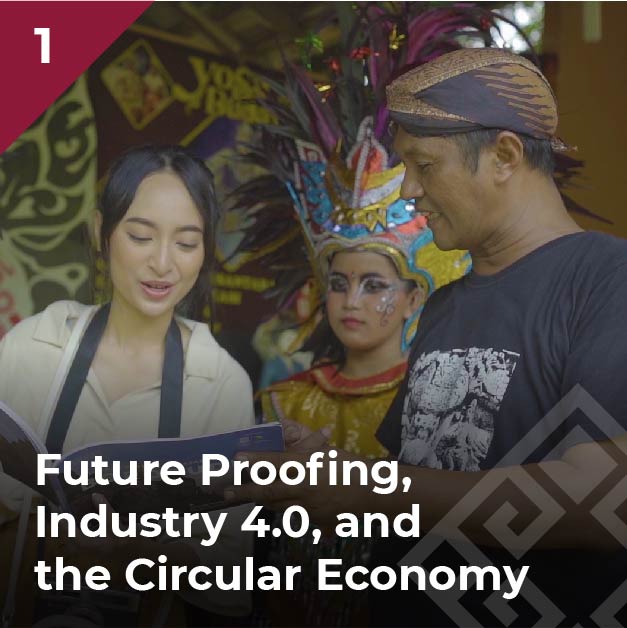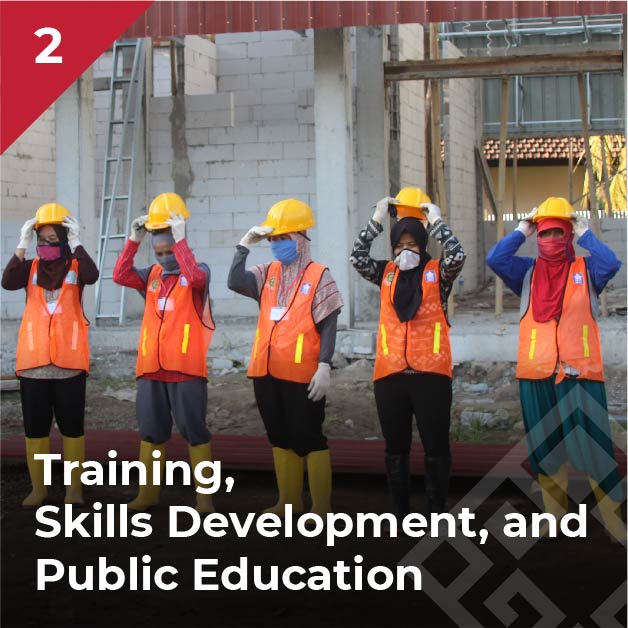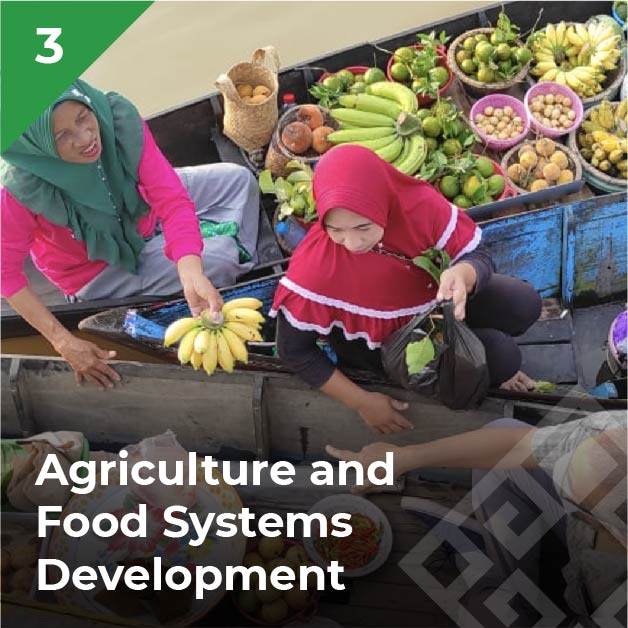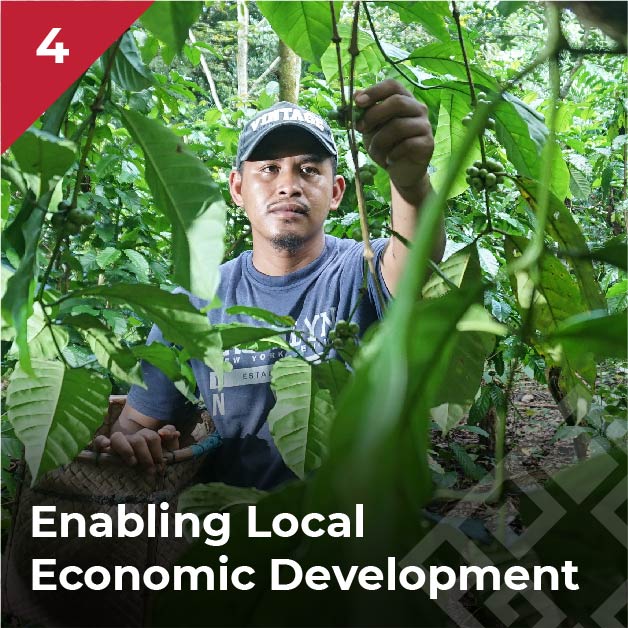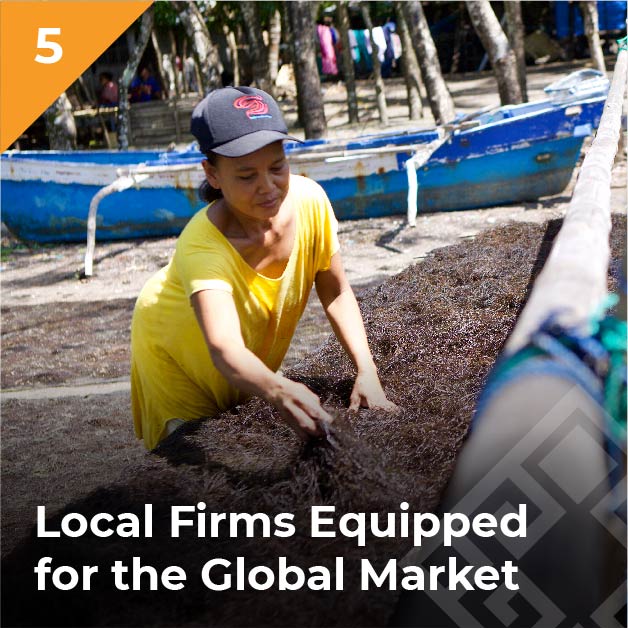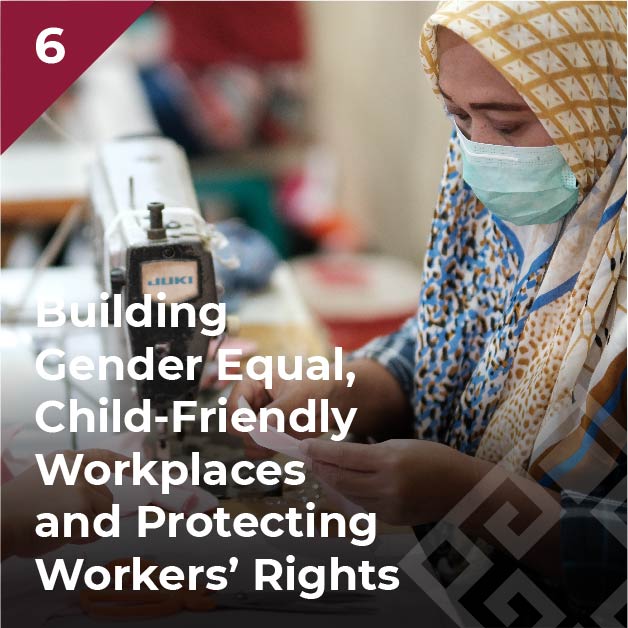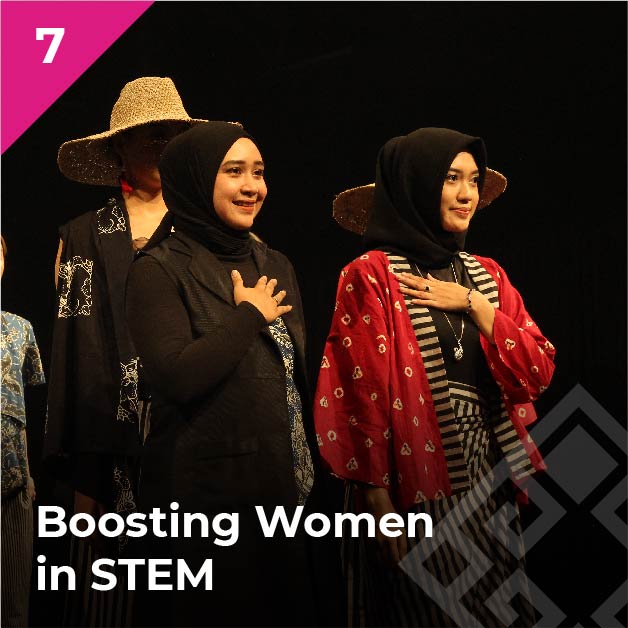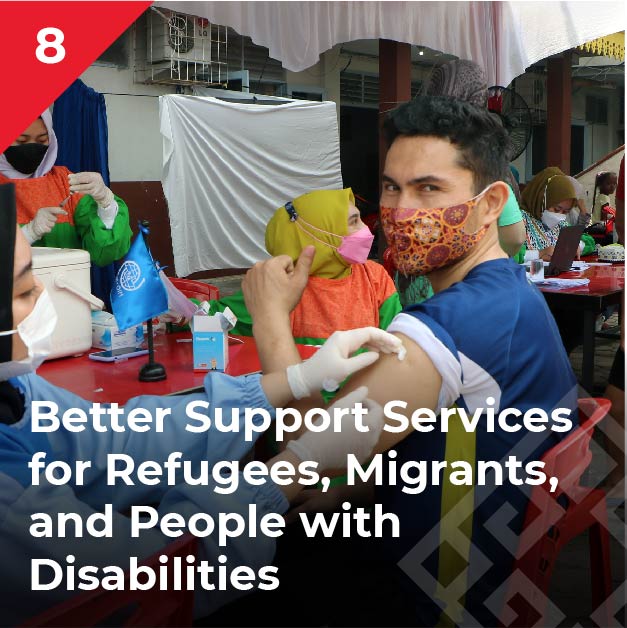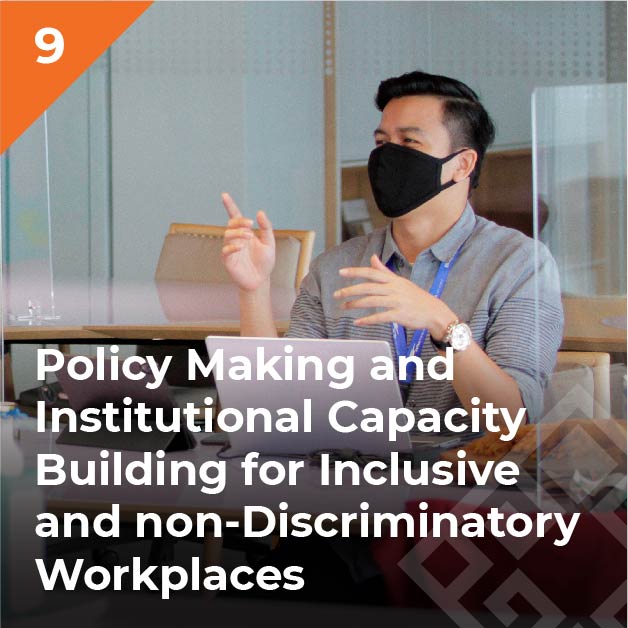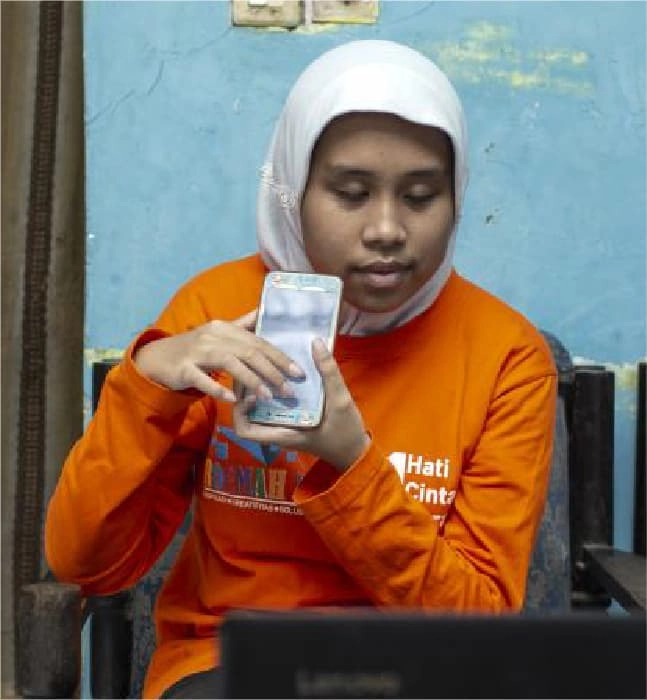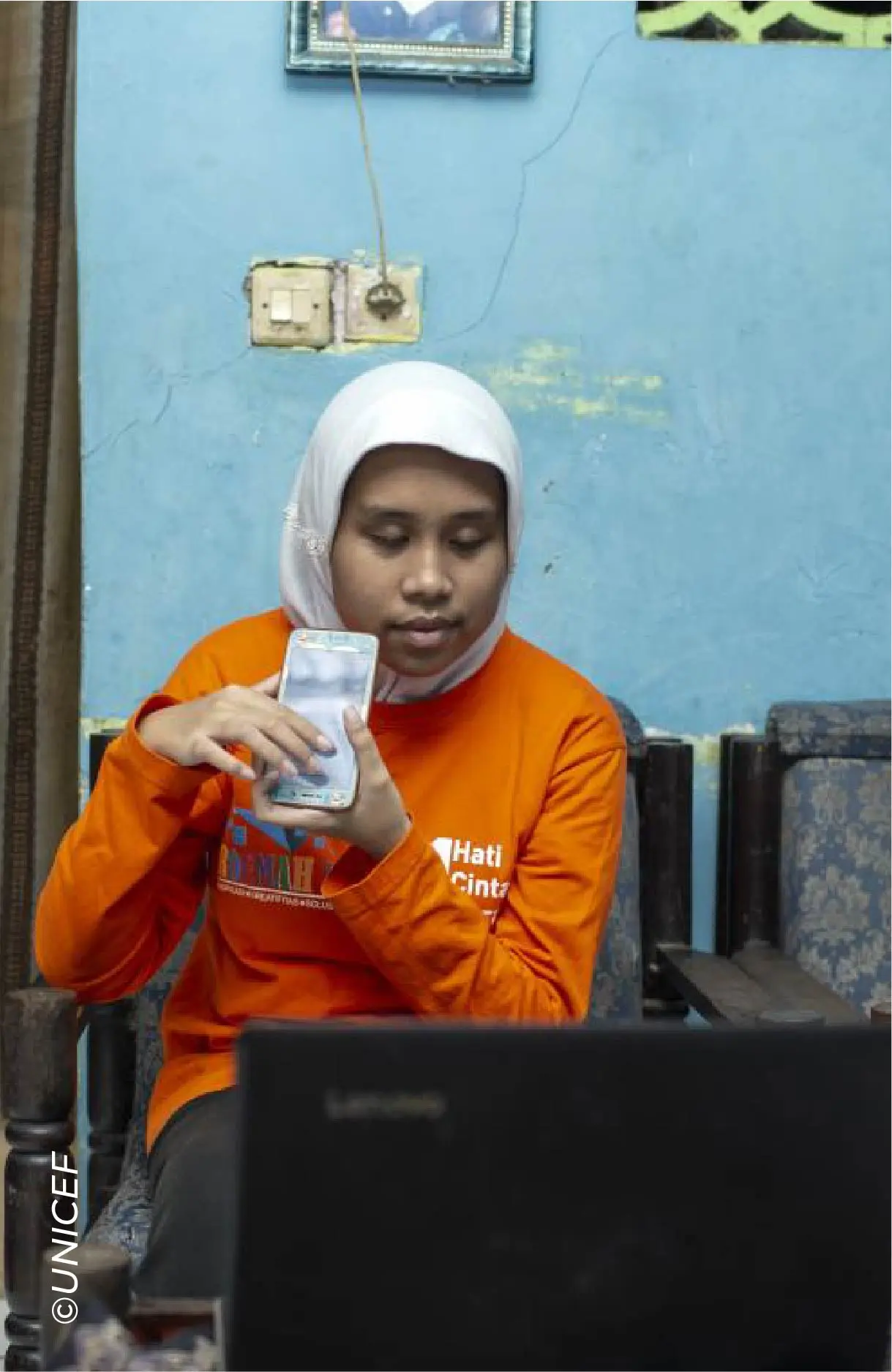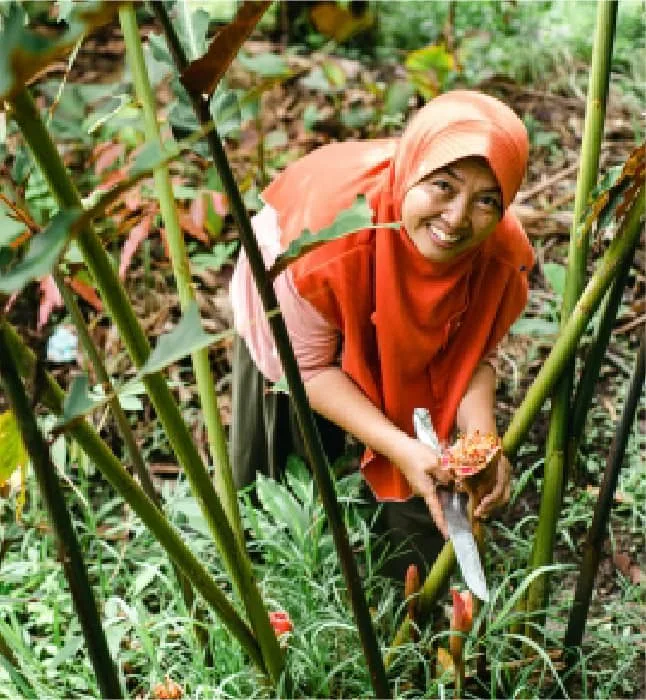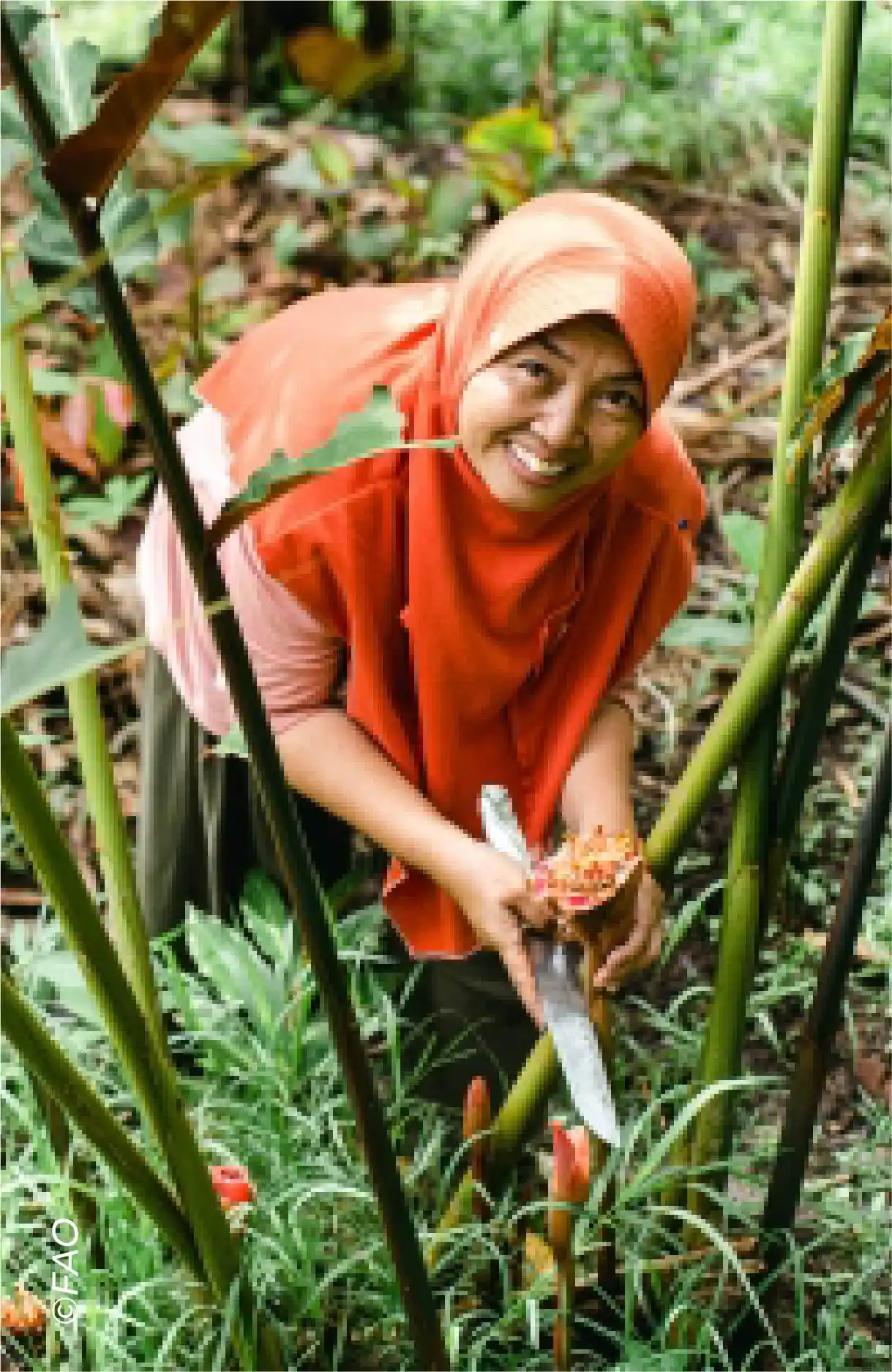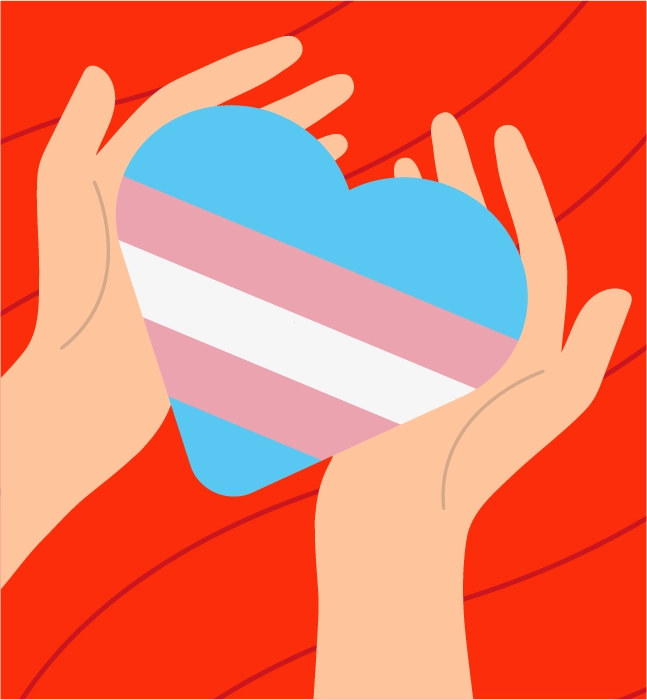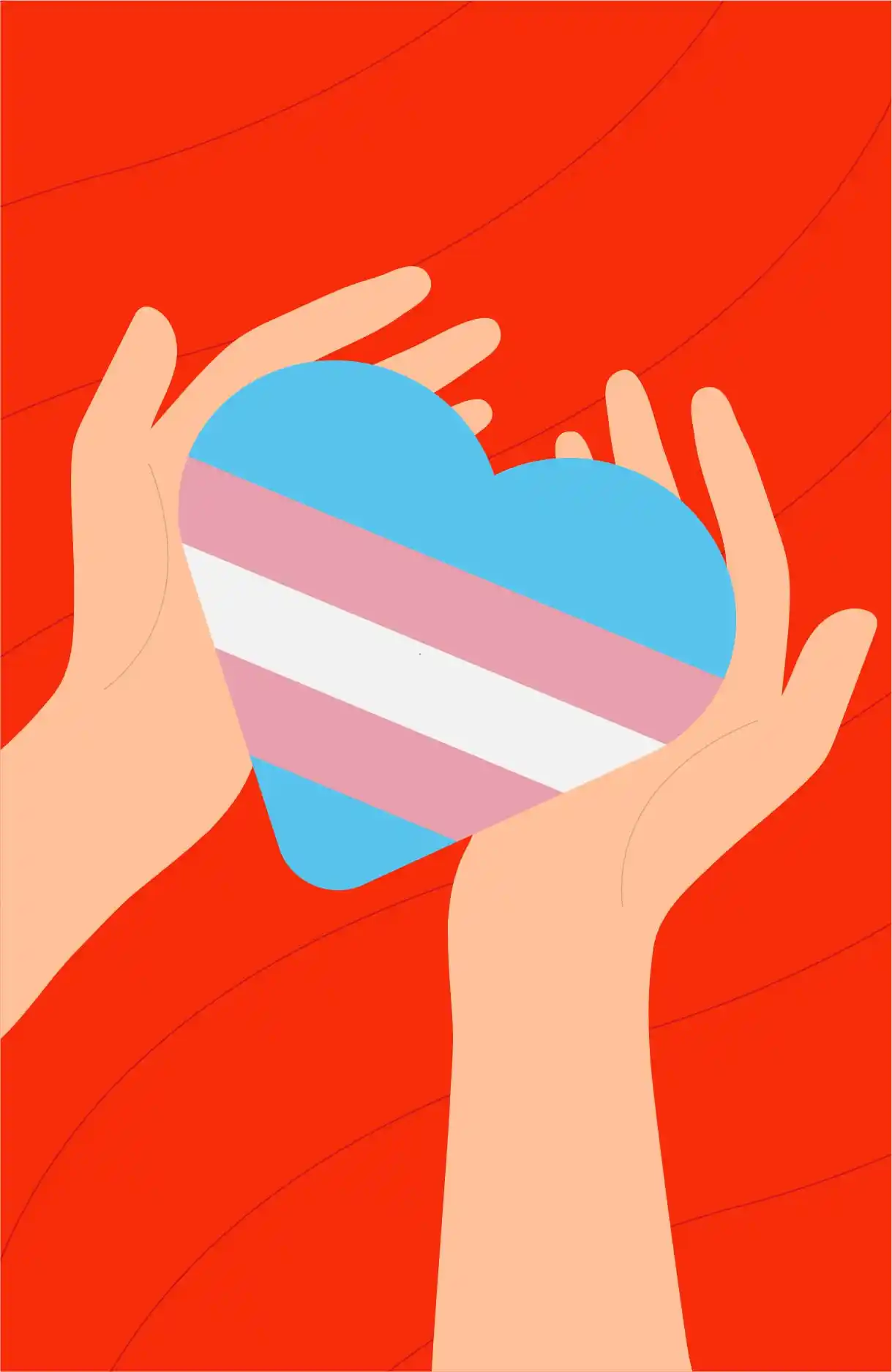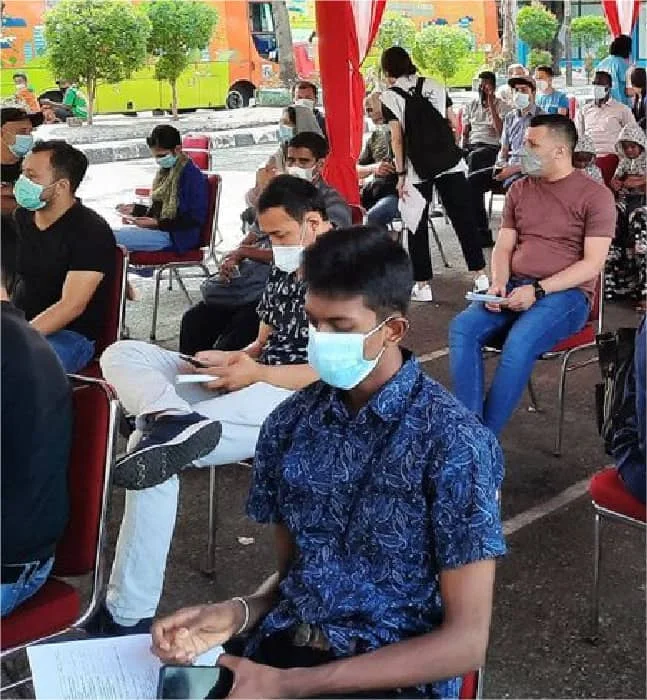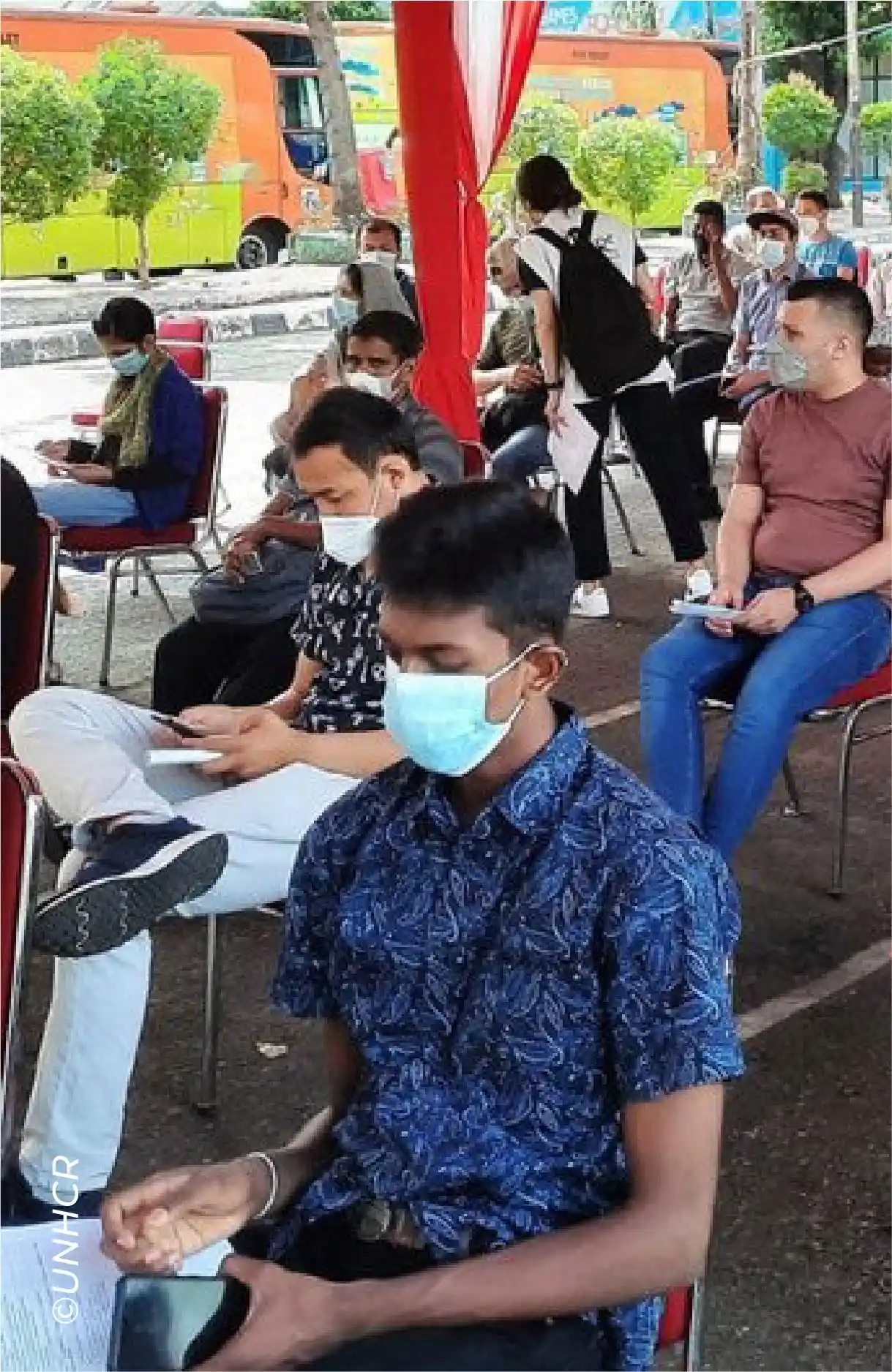United Nations In Indonesia
Country Results Report 2021
Economic Transformation




From videoconferencing to Artificial Intelligence, the tools of “industry 4.0” allowed businesses to keep moving as the world stood still during COVID-19. But the pandemic also highlighted the vast inequalities in who gets to benefit from that technology, including in Indonesia where about half the adult population still lacks access to the internet.
The UN is fostering Indonesia’s transition to Industry 4.0 through its Circular Economy (CE) initiative, which encourages an economic model of production and consumption that centres on sustainability. The year 2021, saw the completion of three comprehensive studies that identify opportunities for CE activities that advance Indonesia’s low carbon agenda across five sectors, meanwhile, the draft of the UN-produced “Circular Economy Strategy: A Road to a National Action Plan” is currently awaiting approval from BAPPENAS.
The UN also analysed the state of digital learning in Indonesia in 2021 through its “reimagining education” initiative, which included assessing digital skills among teachers and students. More than 6,500 teachers, 67% of them women, benefitted from a UN in-service 21st century life skills teacher training program delivered by the Ministry of Education, Culture Research, and Technology. In parallel, the UN continued its work on mainstreaming 21st Century skills through supporting Indonesia’s Pioneering Schools programme, which is expected to reach some 2,500 schools when fully implemented in mid-2022.
Preparing for the future means ensuring food security. The UN is supporting multi-stakeholder efforts to transform Indonesia’s agri-food systems and ensure affordable, healthy diets for all. In 2021, the UN brought together the Ministry of Agriculture and the International Centre for Tropical Agriculture’s Alliance Biodiversity to develop a project document on promoting Indonesian crop diversity towards making global food systems more resilient.
The UN also established 100 home gardens and 29 demonstration plots for peatland-friendly agricultural products in rural Sumatra and Kalimantan in 2021 and helped almost 70,000 hectares of land receive certification from the organic certification body, INOFICE. Meanwhile, more than 310,000 fisheries workers benefited from the improved governance of fisheries commodities production on land and at sea.
Indonesia’s 64.5 million young people constitute the most-educated portion of the country’s population, yet many are excluded from economic opportunities and social participation—a predicament the COVID-19 pandemic has only intensified.
Through its Youth Entrepreneurship and Employment Support Services (YESS) programme, the UN provides young rural men and women with a means to access economic opportunities. By year’s end, the project had identified nearly 60,000 potential beneficiaries of which 20,719 have already received on subjects such as start-up management and financial literacy, as well as business plan and proposal development.
In 2021, the UN carried out a series of activities to support government and private sector efforts to build a more gender-equal business environment. For example, at least 150 companies across multiple sectors took part in a capacity-building virtual workshop on how to translate their support of the UN’s Women’s Empowerment Principles into company policies and operations. Through the UN’s Women in STEM Indonesia Project, 842 women received training in STEM-related technical skills and of those about 20% had either found employment or created a job in the ICT sector by the end of 2021.
To protect workers livelihoods, the UN ran capacity building programmes that helped 130 trade unions in the palm oil sector more effectively advocate for their members’ rights, including the right to freedom of association and collective bargaining. Separately, more than 78 million informal workers stand to benefit from UN-supported scale-up of occupational health services for workers in the informal sector, while 1.5 million health workers could benefit from new UN-supported guidelines on health protections for health workers.
The principles of equality and anti-discrimination are enshrined in Indonesia’s Constitution and its labour law. Still, marginalised groups including women, people living with HIV, key populations vulnerable to HIV infection, indigenous peoples, and people with disabilities often struggle against inequitable access to employment opportunities and social protection. The UN is working at all levels to promote more inclusive, non-discriminatory workplaces. In 2021, a UN collaboration with Indonesia’s Ministry of Manpower on policy development brought about a revision of Indonesia’s Equal Employment Opportunity guidelines that advances women’s economic empowerment.
